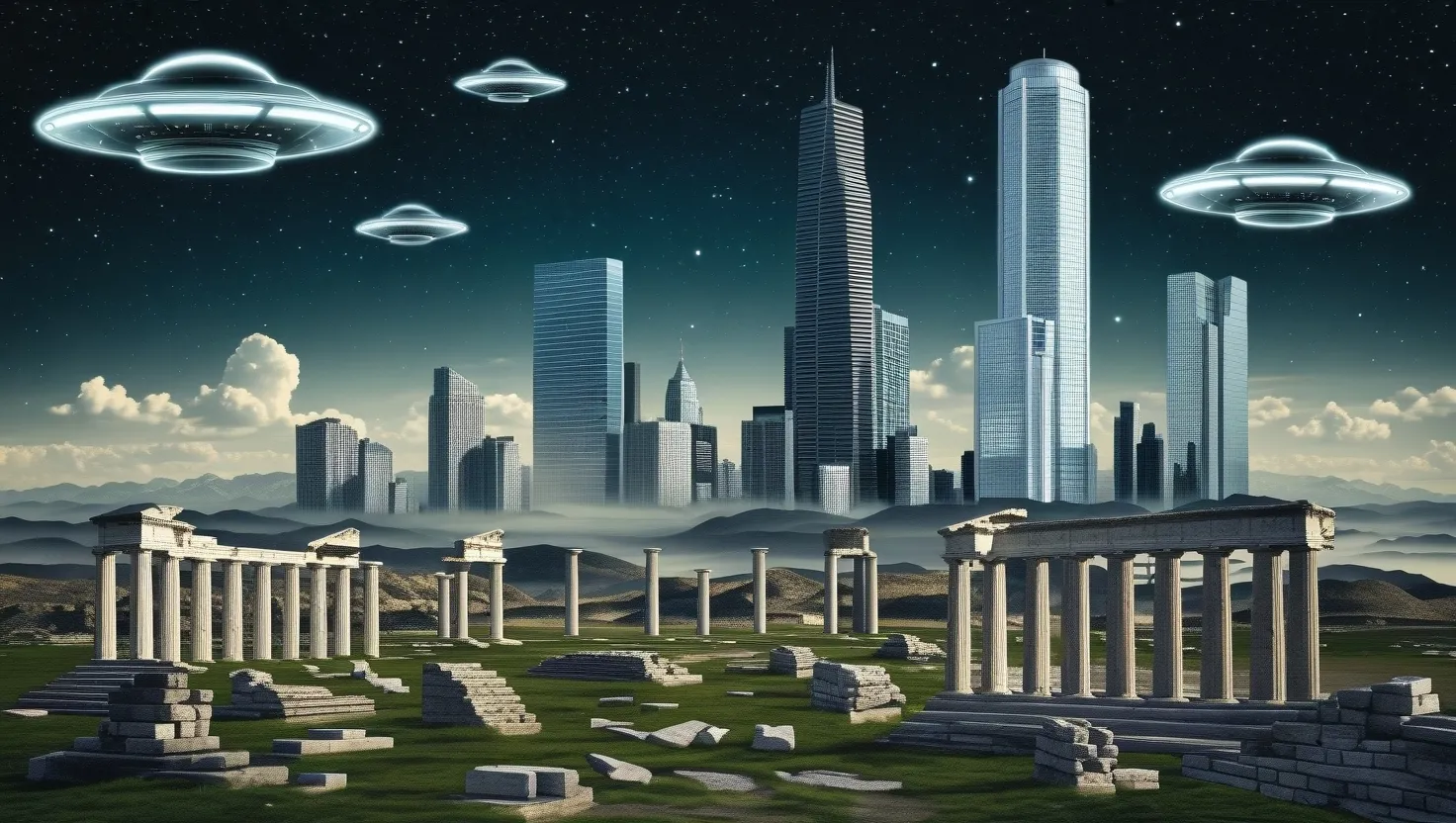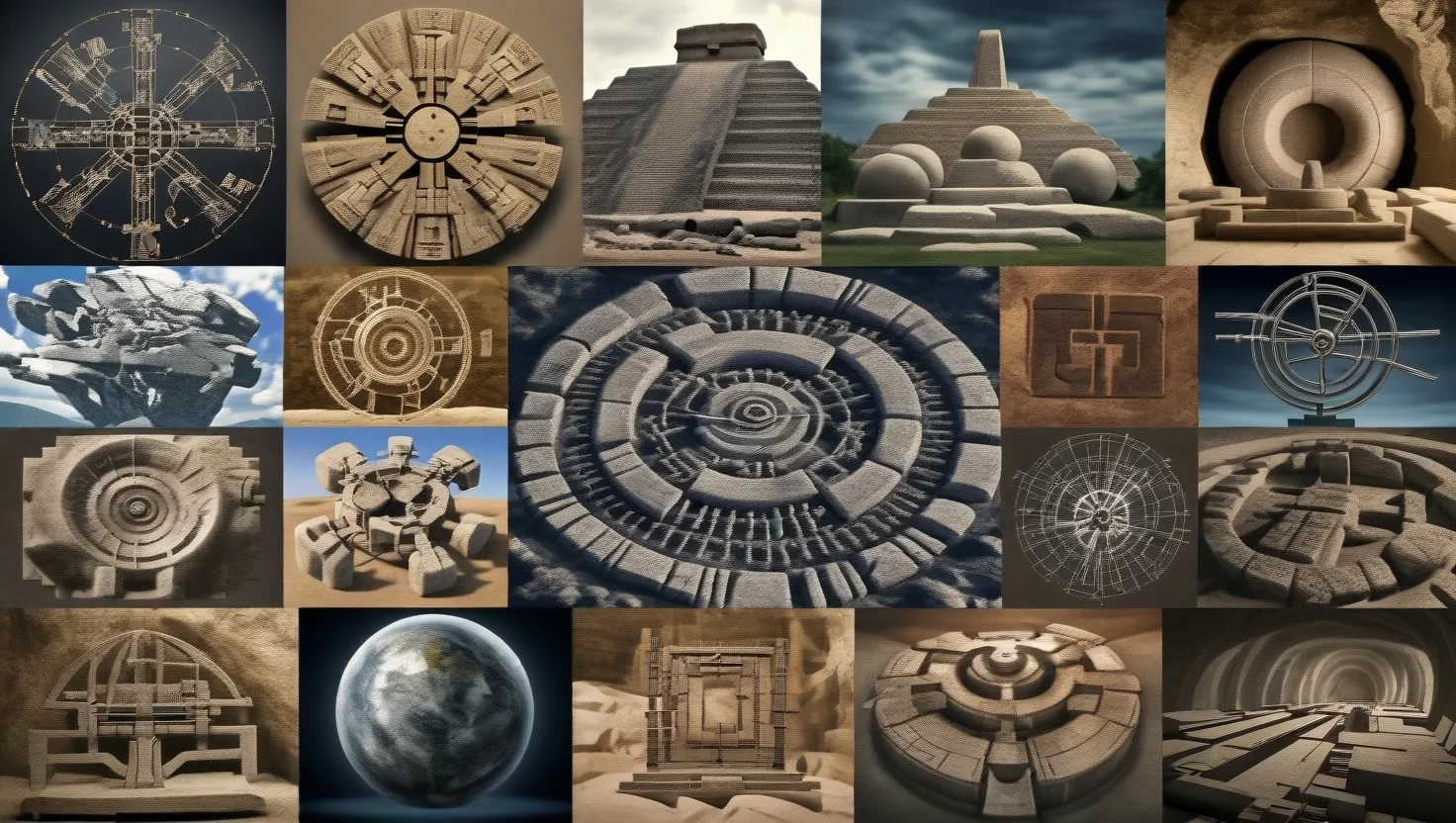As I delve into the realm of ancient myths and modern conspiracy theories, I am struck by the eerie parallels that exist between these two seemingly disparate worlds. It’s as if the human psyche has a penchant for weaving similar narratives across centuries, each reflecting our deepest fears, hopes, and curiosities.
The Quest for Lost Civilizations
Imagine a world where advanced civilizations once thrived, only to be lost to the sands of time. This is the essence of the Atlantis myth, a story popularized by Plato. In modern times, this narrative has evolved into conspiracy theories about hidden advanced civilizations. The idea that there are secret societies or hidden cities, possessing knowledge and power beyond our imagination, resonates deeply with many.
“The Atlanteans, in their beauty and their wisdom, were the children of the gods,” we might say, echoing the mythological roots. Today, this myth manifests in theories about places like Shambhala or Agartha, hidden realms believed to house ancient wisdom and advanced technology.
The Tower of Babel: A Symbol of Global Control
The Tower of Babel, a biblical story about humanity’s attempt to reach the heavens, has a modern counterpart in conspiracy theories about global elite control. In the myth, God confuses the languages of the people to prevent them from completing the tower, symbolizing the fragmentation of human unity. Today, this narrative is reflected in theories about a shadowy global elite manipulating world events to maintain their power.
As George Orwell once said, “If liberty means anything at all, it means the right to tell people what they do not want to hear.” This quote resonates with the feeling of being controlled and manipulated, a sentiment that fuels many modern conspiracy theories.
Prometheus’ Fire: The Quest for Free Energy
Prometheus, the titan who defied Zeus by stealing fire for humanity, is a mythological figure whose story has modern echoes. Today, conspiracy theories abound about suppressed free energy technologies. The idea that powerful entities are hiding technologies that could revolutionize our world is a compelling one.
“Why should we not form a secret society with but one object: the overthrow of the dynamite and nitroglycerine tyrants?” This quote from Jules Verne’s “Twenty Thousand Leagues Under the Sea” hints at the allure of hidden knowledge and the distrust of those in power.
Shapeshifting Gods and Reptilian Humanoids
In ancient myths, gods and goddesses often had the ability to shapeshift, taking on various forms to interact with mortals. This concept has evolved into modern conspiracy theories about reptilian humanoids, beings believed to disguise themselves as humans to control our world.
The psychological appeal of such theories lies in our innate fear of the unknown and the distrust of those in power. As Carl Jung once noted, “The shadow is the seat of the unconscious, and it is individual as well as collective.” This shadow, or the darker aspects of our psyche, often manifests in fears of external control.
The Flood Myth and Climate Change Cover-Ups
The Flood myth, found in various cultures, tells the story of a catastrophic event that resets human civilization. Today, this narrative has parallels in conspiracy theories about climate change cover-ups. The idea that governments or other powerful entities are hiding the true extent of environmental disasters resonates with the ancient fear of divine retribution.
“Nature is not a place to visit. It is home,” says Gary Snyder. This quote underscores our deep connection with the natural world and the anxiety that arises when we feel that connection is being manipulated or hidden from us.
Prophecies and Predictive Programming in Media
Ancient prophecies often foretold significant events that would shape the future of humanity. In modern times, this concept has evolved into theories about predictive programming in media. The idea is that certain events are foreshadowed in movies, TV shows, or books as a way to prepare the public for what is to come.
As Aldous Huxley once said, “The propagandist’s purpose is to make one set of people forget that certain other sets of people are human.” This quote highlights the power of media in shaping our perceptions and the suspicion that it might be used to manipulate public opinion.
Ancient Astronauts and Modern UFO Encounters
The ancient astronaut hypothesis suggests that extraterrestrial beings visited Earth in the distant past, influencing human culture and technology. This idea has a direct parallel in modern UFO encounters and the belief in ongoing alien interactions with humanity.
“The universe is not only stranger than we think, it is stranger than we can think,” said Albert Einstein. This quote encapsulates our fascination with the unknown and the enduring belief that we are not alone in the universe.
The Psychological Appeal
So, why do these ancient myths continue to shape our understanding of the world and fuel contemporary conspiracy thinking? The answer lies in the psychological factors that drive these narratives. Humans have an inherent need to explain the world around them, to find meaning in chaos.
As Sigmund Freud noted, “The uneducated masses … are entirely governed by their instincts and their emotions.” This insight into human psychology helps explain why myths and conspiracy theories persist; they tap into our deepest fears, desires, and need for control.
Conclusion
As we explore these eerie parallels, we are reminded that human nature remains constant despite the passage of time. Our myths and conspiracy theories reflect our hopes, fears, and the eternal quest for understanding and control.
In the words of Joseph Campbell, “Myths are public dreams, dreams are private myths.” This quote encapsulates the idea that our collective narratives are reflections of our individual and collective psyche.
So, the next time you hear a conspiracy theory or an ancient myth, take a moment to reflect on why it resonates with you. Is it the fear of the unknown, the desire for control, or the need to explain the inexplicable? Whatever the reason, it is clear that these narratives will continue to shape our world, both in the past and in the present.






